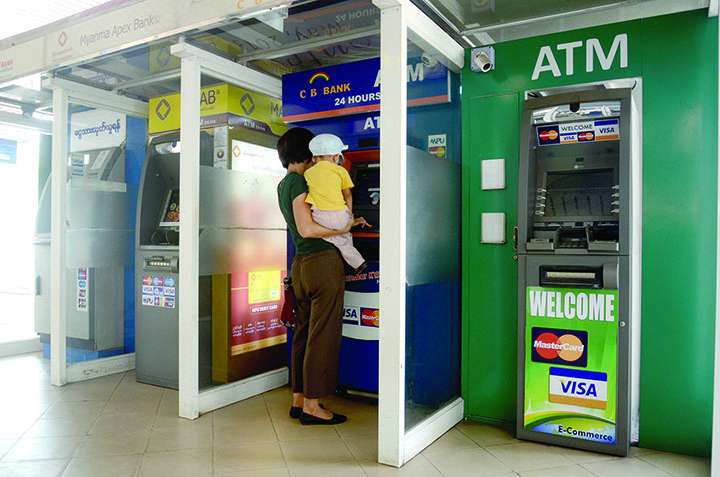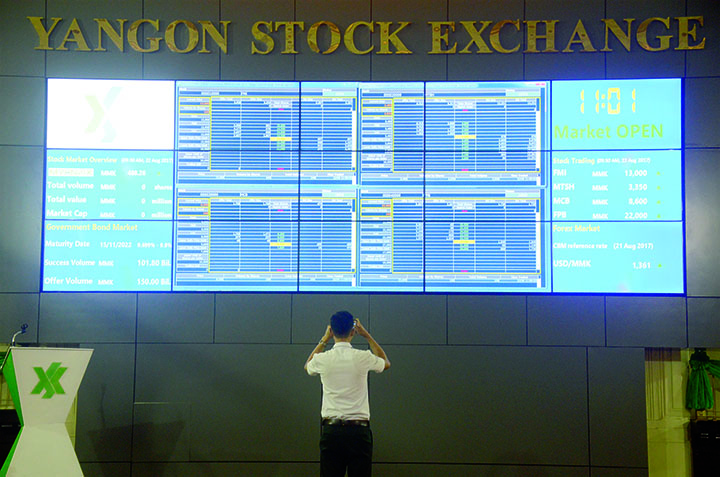23 May
Following the visit to Myanmar on 15 March 2019, the Executive Board of the International Monetary Fund (IMF) concluded the Article IV consultation with Myanmar, and issued a press release on 12 April 2019.
IMF is of the view that Myanmar’s economy rebounded in 2017-2018 but appears to be losing momentum,” and that growth rebounded to 6.8 percent in 2017-2018 driven by exports and a recovery in agriculture. The fiscal deficit reached about 2.7 percent of GDP in 2017-2018, and the Central Bank financing of the deficit continued to decline.
Headline inflation was moderate in 2017-2018 (4.0 percent on average) but has been rising from increased fuel prices and a depreciating kyat.
The current account deficit widened marginally in 2017-2018 to a little fewer than 5 per cent of GDP and was largely financed by strong FDI inflows keeping international reserves at around three months of imports.
Preliminary data in the transition budget year (April–September 2018) point to reduction in speed or rate of growth due to government under spending, waning investor confidence and moderating global demand.

The medium-term macroeconomic outlook
The medium-term macroeconomic outlook remains favorable. Myanmar’s economy is expected to gain steam over the medium term albeit at a somewhat slower pace than previously envisaged and subject to greater downside risks partly related to the humanitarian crisis in Rakhine State.
The accounts deficit for the new fiscal year is projected to increase, providing a modest fiscal stimulus on the back of higher capital spending.
A drop in international oil prices and a gradual moderation in inflation over the near term should support consumer spending. Successful implementation of the second wave of reforms in the Myanmar Sustainable Development Plan (2018-2030) will help sustain the growth take off and achieve the Sustainable Development Goals.
Risks are tilted to the downside
Risks are tilted to the downside. A prolonged humanitarian crisis and any withdrawal of trade preferences could reduce concessional donor financing and investment leading to lower growth.
Macro-financial spillovers, an instance of overflowing or spreading into another area, from the ongoing banking sector restructuring process may be more severe if banks delay recapitalization.
Risks on the global front include trade tensions and related global financial market volatility, high crude oil prices and spillovers from exposure to China.
On the upside, a faster resolution of the humanitarian crisis would facilitate higher external financing that allows greater SDG-related spending and rebuilding of international reserves.
Executive Directors recognized Myanmar’s positive long term prospects, reflecting its growing demographic dividend, competitive labor force, and strategic location. They noted, however, that economic activity is losing momentum and near-term downside risks have increased.
They expressed particular concerns with the potential effects of the prolonged humanitarian crisis in the Rakhine State and the weaknesses of the banking sector.
In this context, Directors welcomed the second wave of reforms embedded in the Myanmar Sustainable Development Plan (MSDP), which focuses on peace, stability, and good governance. In particular, they stressed the need to sustain prudent macro economic policies and maintain the structural reform momentum.
To achieve SDG Goals
Directors agreed that fiscal policy should aim at promoting spending to achieve the Sustainable Development Goals while phasing out central bank financing of the fiscal deficit and maintaining debt sustainability.
They welcomed recent declines in central bank financing and efforts to increase fiscal transparency, which should help reduce risks related to infrastructure projects including from public private partnerships.
Given the low tax ratio, Directors stressed the need to improve revenue mobilization; they also encouraged the authorities to pursue reforms in public financial management, strengthen budget execution, and enhance state owned economic enterprise efficiency and governance.
Directors supported keeping current monetary conditions tight to anchor market interest rates and control inflation. They also endorsed further upgrades in the monetary framework and interest rate liberalization that would help enhance the transmission mechanism.
Directors welcomed recent reforms, such as the market based reference exchange rate, which should provide a cushion against exogenous shocks, such as that of events from outside the economic system that affect its course.
Fragilities in the banking sector
Directors emphasized the need to swiftly address the systemic risks and fragilities in the banking sector. They stressed the need to improve compliance, loss recognition and ensure recapitalization, where needed. They also affirmed the need to quickly form contingency plans to address systemic risks in the banking sector and to strengthen the resolution framework.
Directors noted that capacity development from the Fund will be critical in supporting the goals of the MSDP. They welcomed the authorities’ progress on the MSDP thus far such as liberalization of restrictions on foreign investment but noted that there is room to further improve governance, including the fiscal transparency of natural resource management, financial sector regulations and AML/CFT regime, and implementation of the anti corruption framework.
Finally, Directors welcomed the recent improvements in data quality and coverage, and encouraged the authorities to address remaining data shortcomings.
It is expected that the next Article IV consultation with Myanmar will be held on the standard 12 month cycle.
References : IMF Executive Board Concludes 2018 Article IV Consultation With Myanmar (Press Release No 19/115); Newspaper article, appears on the Mirror Daily, written by Khin Maung Nyo (Economics)
Complied by UMT (Ahlon)


